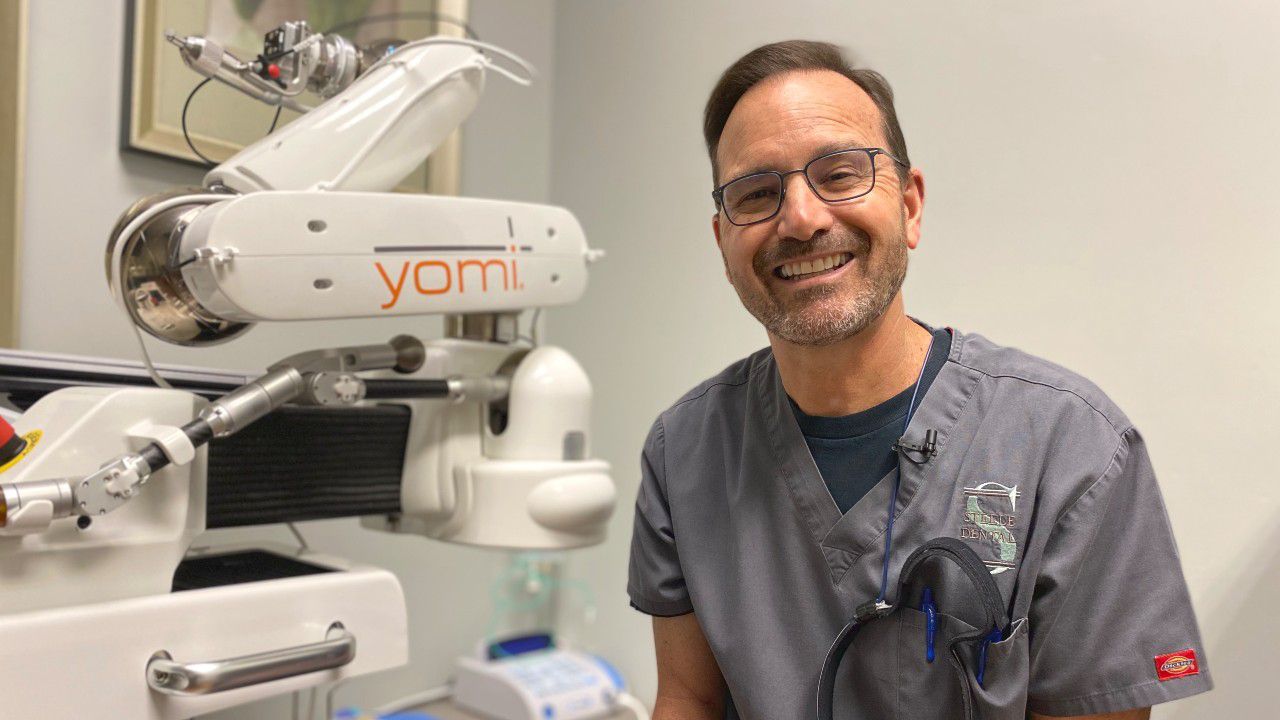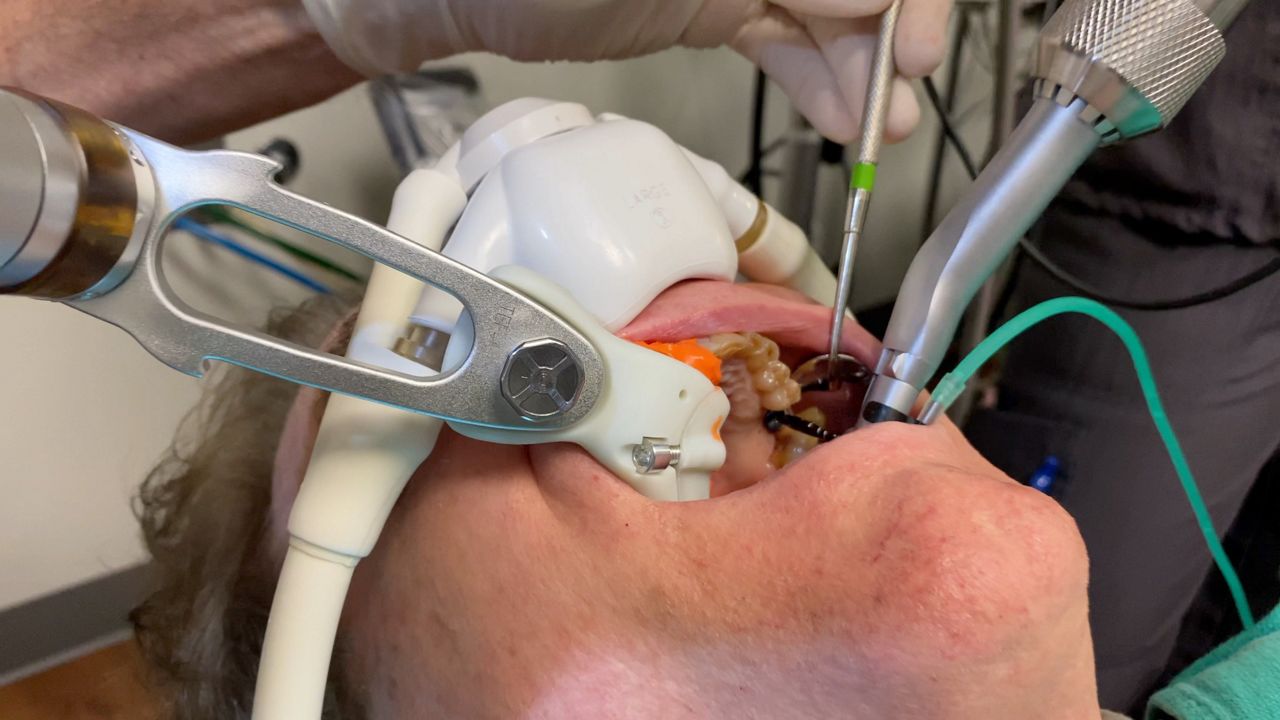COPPELL, Texas — Dentistry has come a long way since Dr. J. Darrell Steele was studying to be a dentist. In his three decades of practice, the world of dentistry has shifted from a reactive practice to a preventive practice, according to Dr. Steele.
“Almost everything about dentistry has changed,” said Dr. Steele “We have new local anesthetics, we have new materials, we have new hardware and software to help us do our job better.”
Dr. Steele practices in Coppell, Texas, and specializes in oral surgeries, including dental implants, wisdom teeth extractions and bone grafting.

“I’ve done thousands of dental implants over the last 30 years,” said Dr. Steele.
When Dr. Steele graduated from Baylor’s College of Dentistry in the late '80s, tooth implants were just making their way into the field of dentistry.
Over the years, Dr. Steele has worked hard to stay up-to-date with the latest technology in dentistry. When he learned about a robotic device cleared by the FDA in 2017 as the first robot-assisted dental surgical system used for a single-tooth implant, he was interested.
“The name of the device is called YOMI Robotic Dental System. It works like a GPS navigation system for the mouth,” said Dr. Stelle. It’s made by Neocis, a high-tech health care startup based in Miami, Florida. The company says the robot helps dentists like Dr. Steele map out and customize a treatment plan tailored to each patient.
In doing so, it eliminates the guesswork and shows exactly the depth, cutting position and needed angles that the procedure requires to achieve optimal results, thus making it minimally invasive.
“I always have control of the drill and can always go back and change the treatment plan if needed,” said Dr Steele. “The robot is simply an assistant so that I can perform a faster and more precise implant procedure with less pain.”
Robots being used in surgery isn’t a new concept. The first surgical robot was used in 1985 to help guide a needle into the brain for biopsy.

In the last 36 years since medical advances have incorporated the use of robots, Dr. Steele is happy there’s finally one he can use.
Many of his patients, such as Coppell resident Jim Krueger, feel more comfortable knowing the device insures a more precise procedure.
“Some people may be nervous about all of this, but not me,” said Krueger. “I’m a computer systems network engineer. So, anything that can be done to make it more accurate and more precise and less painful, I’m all for it.”
Another patient who’s benefited from the robot is Coppell resident Greg Spalding. He’s been a patient of Dr. Steele's for more than a decade and said he trusted Dr. Steele before the robot, but feels this new device adds an extra layer of trust.
“Dr. Steele done this long enough that he really doesn’t need the robot,” said Spalding “He’s done thousands of these, but if he thinks after that kind of experience that this robot would be helpful, then I’d have to agree with him.”
Dr. Steele said this month robot is the future of dentistry and wished he would have had this technology as a young dentist.
“There’s not many opportunities in dentistry for this type of technology,” said Dr. Steele. “This kind of advance comes along once every 10 to 15 years. Once I saw this technology and what it could do for my patients, I had to add it to my office.”
He looks forward to continuing to grow with the industry he loves.
The cost of the dental robot is $300,000. Patients who have insurance that covers implant procedures can have this procedure covered as well.



